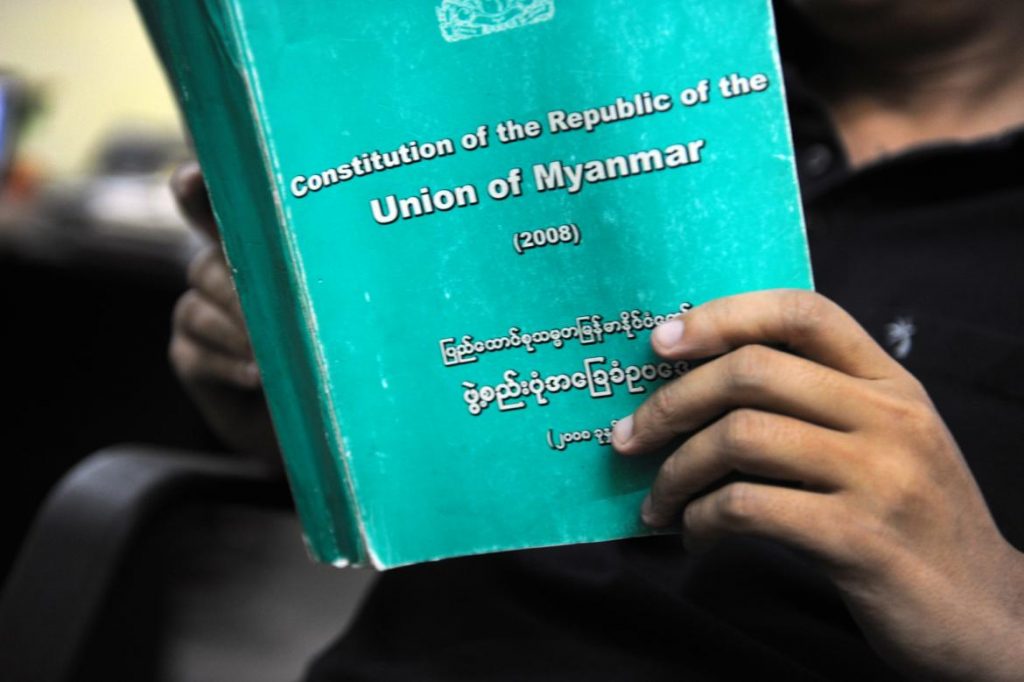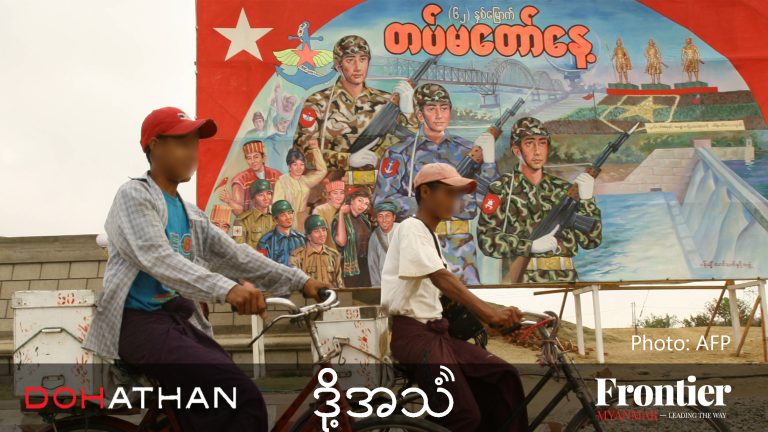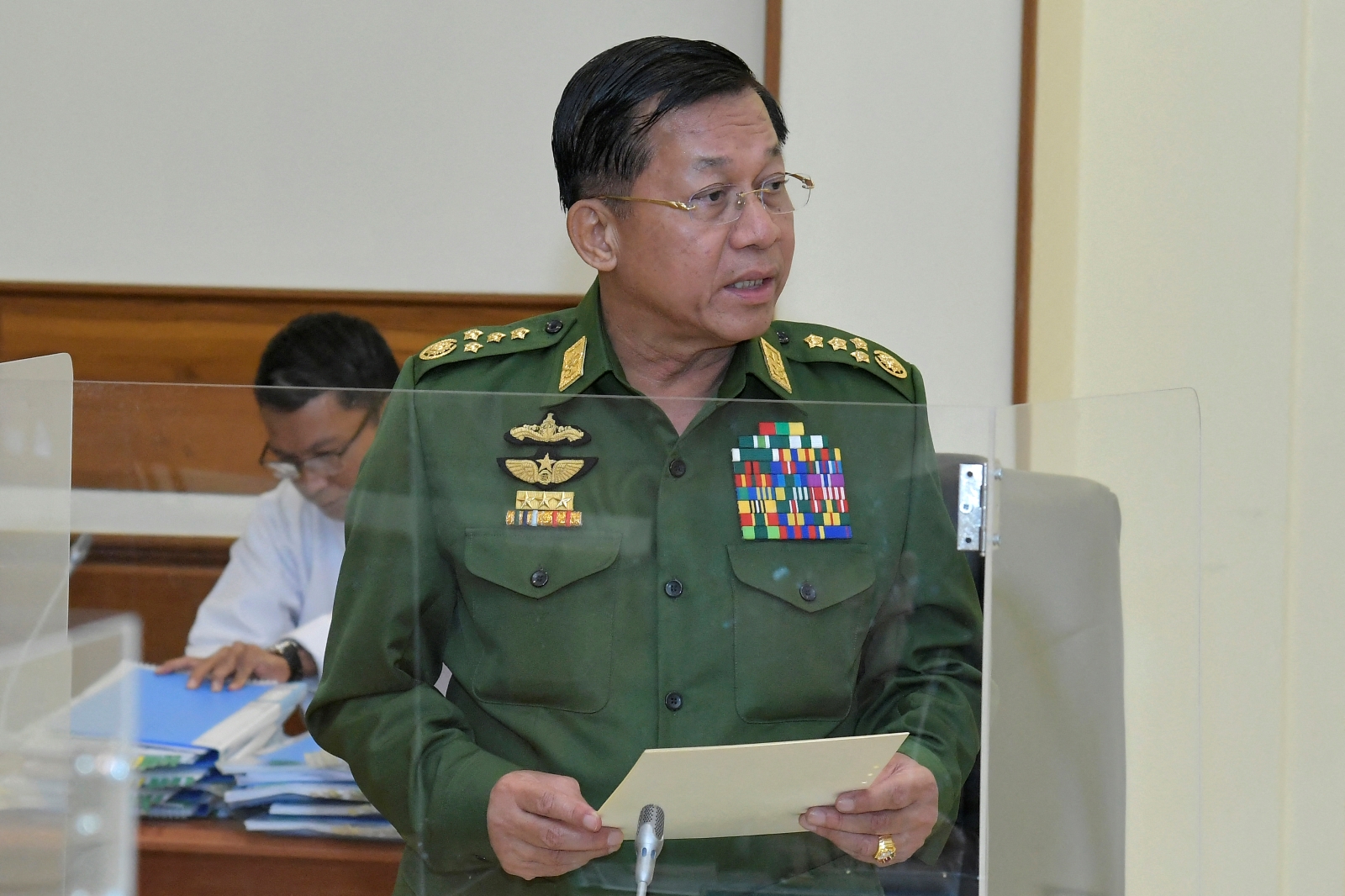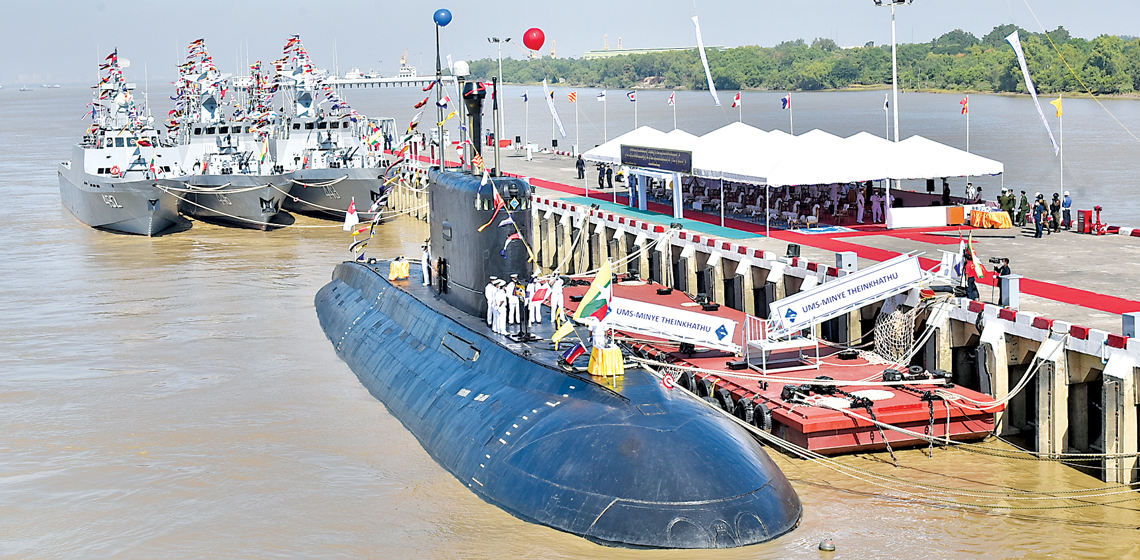By YE MON | FRONTIER
YANGON – The National League for Democracy’s long-standing campaign to reform the 2008 Constitution returns to the Union parliament this week, with a debate to begin on Tuesday on a report that contains nearly 4,000 proposals to amend the military-drafted charter.
A total of 125 lawmakers had registered last week for what was expected to be a lively debate. These include 78 unelected MPs from the Tatmadaw, which opposes the report and the formation of the committee that composed it, claiming that they violated the constitution and parliamentary procedure.
Twenty-seven MPs had registered from the military-linked Union Solidarity and Development Party, while only six registered from the NLD. Only three registered from the Shan Nationalities League for Democracy, though it submitted the most proposals of any party on the constitutional amendment committee, and five registered from the Arakan National Party, which submitted the second-largest number.
Twenty-one MPs will debate on Tuesday, with other registered MPs joining on subsequent days.
Support more independent journalism like this. Sign up to be a Frontier member.
When the NLD was in opposition after entering parliament in by-elections in 2012, it launched a national campaign to amend the charter, which it regards as undemocratic because it gives the Tatmadaw an effective veto over constitutional reform.
The campaign, which included the circulation of a petition said to have attracted about five million signatures, culminated in a debate in parliament in June 2015 that focused mainly on amending section 436(a), the key to charter change. It gives the unelected Tatmadaw MPs who hold 25 percent of the seats in the parliament an effective veto because it stipulates that amendments to the constitution require the support of more than 75 percent of MPs.
When the Pyidaungsu Hluttaw voted on June 25, 2015, to amend 436(a) by lowering the threshold to 70 percent, the move was lost, despite attracting the support of 388 MPs, or 66.53 percent of the 583 lawmakers at the joint sitting.
The vote came after a three-day debate on a series of proposed amendments to the constitution, including to section 59(f), which bars presidential candidates from having foreign spouses or children. The clause was believed to have been included in the constitution to prevent NLD leader Daw Aung Suu Kyi from becoming president because her late husband, with whom she had two sons, was British.
The proposed amendment, to allow presidential candidates to have foreign spouses, also failed to meet the threshold, attracting the support of 371 MPs, or 63.64 percent of those at the sitting.
The Pyidaungsu Hluttaw did approve an amendment under which a requirement for presidential candidates to be well acquainted with “military affairs” was changed to require them to be knowledgeable about “defence affairs”.
“I am not surprised with the result,” Daw Aung San Suu Kyi told reporters later. “This makes it very clear that the constitution can never be changed if the military representatives are opposed.”
The NLD’s latest bid to reform the charter, which has raised tensions with the Tatmadaw, follows the July 15 release of a report by the Pyidaungsu Hluttaw’s Constitution Review Amendment Committee. The committee began reviewing the charter in February following its appointment by the NLD-dominated Union parliament in a vote backed by nearly 67 percent of MPs.
The report by the 45-member committee, which included representatives of 14 parties, as well as independent lawmakers and unelected Tatmadaw MPs, contained 3,765 proposals to amend the constitution.
The NLD proposed 114 changes, including amending sections 436(a) and 59(f).
The SNLD proposed the most amendments, with 1,112, and other ethnic-based parties were also prominent in pushing for reform. The ANP proposed 858 amendments, followed by the Mon National Party (641), the Ta’ang (Palaung) National Party (178), the Pa-O National Organisation (140), the Kachin State Democracy Party (111), and the Zomi Congress for Democracy (53). The USDP proposed 10 amendments.
An NLD spokesperson, U Aung Shin, said the party had devised a strategy to negotiate the hurdles to amending section 436(a) but declined to elaborate.
“Everyone knows that amending the constitution requires a vote of more than 75 percent of Union parliament MPs and that the Tatmadaw holds 25 percent of the seats; but don’t worry, the move to amend 436(a) will be successful,” he said.
Aung Shin said the party had not sought amendments to section 261, under which the president appoints chief ministers of the states and regions, because it wanted ethnic parties to take the lead on the issue.
“One of the reasons why the NLD wanted to form the [Constitution Review Amendment Committee] was to give the ethnic parties a voice,” he said.
However, the lead on this issue has not been taken by ethnic parties but by the NLD’s principal opponent, the USDP.
Although the USDP has opposed the move to amend the constitution via the committee as unconstitutional, it has also proposed changes to section 261, such that chief ministers would be elected by the hluttaw in their state or region, in a possible bid to win allies among ethnic parties. The section is a sore point for ethnic parties because it resulted in NLD members being appointed chief ministers of Rakhine and Shan states after the 2015 election, despite the party being in a minority in the state hluttaws.
The appointments from within the NLD were “bad”, said Pyithu Hluttaw MP Sai Thiha Kyaw (SNLD, Mongyai), who said it would be “fine” if the president were to appoint representatives of ethnic parties as chief ministers.
“If the president has goodwill for ethnic people, he should use his power,” he said.
Thiha Kyaw predicted fiery clashes during the constitutional reform debate, especially between the NLD, and the USDP and unelected Tatmadaw MPs.
The 1,112 amendments sought by the SNLD include the repeal of section 14, which stipulates that the nation’s parliaments “include the Defence Services personnel as hluttaw representatives nominated by the Commander-in-Chief of the Defence Services in numbers stipulated by this constitution”. The SNLD also wants changes to section 20, which says that the Tatmadaw is the “sole patriotic national defence force” and that the Tatmadaw commander-in-chief is “the supreme commander of all armed forces”.
The NLD supports the repeal of section 20 but has proposed for section 14 that the percentage of unelected Tatmadaw MPs in the nation’s hluttaws be gradually reduced, to 15 percent after the 2020 election, 10 percent after the vote in 2025 and five percent after 2030.
The Tatmadaw’s True News Information Team told a regular news conference on July 23 that the military would be prepared to withdraw from politics when the political and economic situation was stable.
“We wish for that stability soon; we pray for it,” said Major-General Tun Tun Nyi.
Thiha Kyaw said the SNLD was not expecting much from the move to amend the constitution because of the opposition from the Tatmadaw and the tensions between it and the NLD.
“The military did not present any proposals to the Constitution Amendment Review Committee and we think the attempt to amend the constitution will be more difficult than in 2015,” he said.
Political analyst U Maung Maung Soe said the NLD needed the cooperation of the Tatmadaw to amend the constitution and for that reason he doubted that the current bid for charter reform would really succeed.
“The Tatmadaw will support some changes but it will not support any move to reduce its presence in the hluttaws. Success on this issue will require much more cooperation between the NLD and the Tatmadaw,” he said.







